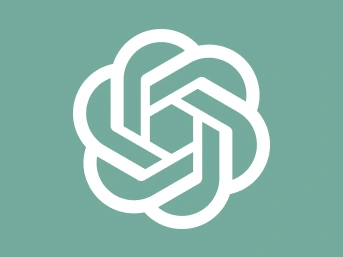
by Muthu Krishnan
Since the announcement of ChatGPT, every day brings a plethora of new articles on generative AI and numerous use cases explaining how people are using ChatGPT to assist with a wide variety of tasks. Almost all organizations that use technology have become curious to learn more about the possibilities of ChatGPT and how it can extend value to their business and to their customers. WhiteSpace Health is also evaluating how we can leverage generative AI to operate more efficiently, add more value to our clients, and lift financial performance.
ChatGPT (chat.openai.com) is a language model that interacts with the user through conversation. Created by Open AI, ChatGPT is a sibling to InstructGPT. Using a conversational approach, ChatGPT has been trained to follow an instructional prompt and supply a detailed response. Open AI postulates that generative AI models are much better at following user intentions. It can also answer follow up questions, point out errors, suggest changes and it can even challenge incorrect or inappropriate requests. (Though how it determines what is “inappropriate” is not clear.)
We have already found three strong candidate use cases for ChatGPT in our platform.
In busy engineering departments, the creation of training material can be de-prioritized until it becomes critical. Since ChatGPT is well known for giving detailed responses to verbal prompts, our team wanted to understand whether it could help us create technical training documentation for developers and interface architects. We have concluded that ChatGPT can help us alleviate this documentation need by generating technical and training materials. Technical staff can review ChatGPT’s output, apply quality assurance techniques, and perform final edits for clarity and accuracy, dramatically reducing the time to create high quality technical documentation.
Unlocking the tremendous value of data currently stored in disparate electronic health records and related systems is a distinctive competence of WhiteSpace Health. Clients depend on our platform to create transparency to the health of their workstreams and, more importantly, to deliver actionable intelligence that finds and fixes the issues found by the AI.
Large language models (LLM) are a type of artificial Intelligence algorithm that uses deep learning techniques and massively large data sets to understand, summarize, generate, and predict new content. LLM has specifically been architected to help generate text-based content. Our team is already building models for several scenarios where LLMs could be deployed that also preserve the privacy of client business process and the security of protected health Information.
The WhiteSpace Health Platform transforms client data into hundreds of our KPIs (key performance Indicators). Each KPI is associated with a short description. Right now, all of these descriptions are human generated and entered into the user interface. Our team is planning to use ChatGPT to automatically generate these descriptions, allowing the product team to act as editors. This functionality could be extended even further in the future so clients could personalize the standard KPI descriptions into terms that are familiar to their respective organizations. When access to this new functionality becomes available, WhiteSpace Health will only need to validate the accuracy of the description with the calculations that have been applied to client data.
ChatGPT technology is exciting, and it is already inspiring an amazing amount of innovation. Companies like ours are beginning to understand the capabilities of AI and ChatGPT to solve more problems – more rapidly – for our customers.

Muthu Krishnan is the Chief Technology Officer at WhiteSpace Health. Muthu is known for helping early and mid-stage companies embrace agile methodology that rapidly brings products to market to successfully solve customer problems.
Contact: muthu.krishnan@whitespacehealth.com

2424 North Federal Highway, Suite 205
Boca Raton, FL 33431